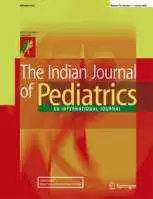
Celiac.com 07/20/2010 - Anyone who's tried to maintain a gluten-free diet for celiac disease or other reasons can likely tell stories about the difficulties and challenges they face on a regular basis. Still, very little research has been done regarding the psychological and social challenges faced by people with celiac disease who are attempting to follow a gluten-free diet.
Scientists in India recently conducted just such a study. A research team set out to assess psychological and social challenges faced by Indian children with celiac disease who are attempting to follow a gluten-free diet. The research team included Srikanta Basu, J. C. Chauhan, A. K. Dutta, Praveen Kumar, and Arun Kumar from the Division of Gastroenterology, Department of Pediatrics at Lady Hardinge Medical College and Associated Kalawati Saran Children Hospital in New Delhi, India.
Celiac.com Sponsor (A12):
Their goal was to assess dietary compliance to gluten-free diet, to identify barriers to compliance, and to study the impact of diet on the psychosocial behavior of children with celiac disease.
For the study, the team looked at children with clinically proven celiac disease, who had been observed for at least 6 months. They then evaluated the children for gluten-free diet compliance.
Researchers who were blinded to initial results then interviewed patients using a self-administered questionnaire. The team measured psychosocial parameters using the standard 35-item Pediatric Symptom Checklist (PSC).
To determine what factors might affect dietary compliance, the team compared the results of children who were compliant with their gluten-free diets to those who were not-compliant. They then compared the psychosocial parameters of both groups to those of healthy control subjects.
The team measured a total of 70 patients for dietary compliance. They found 53 children to be compliant with a gluten-free diet (75%). They found 13 were non-compliant with a gluten-free diet (18%), while 4 children were likely non-compliant.
A total of 64 children completed the full assessment. Final analysis showed that 4 of those children were likely non-compliant. Data for 2 patients with incomplete assessments was dropped.
Younger kids showed higher compliance with a gluten-free diet than did teens. 80% of younger kids showed compliance with a gluten-free diet, compared with just 44% of teens. Gluten-free diet compliance was also higher in children with higher maternal education, and in parents with better knowledge and understanding of celiac disease, and in nuclear families. Higher family income raised compliance levels.
Children with 2 or fewer siblings did better, with compliance rates of 68.3% and just 23% non-compliance. 72% of kids who were compliant with a gluten-free diet had presented classic symptoms of celiac disease, while only 15% of this group was non-compliant.
Adjustment-related challenges, such as difficulty in maintaining diet at school, restaurants, trips, etc. are among the most common problems faced by celiac children. Nearly half (45%) of the children complained that teachers did not adequately understand the challenges of their condition. Researchers established a PSC cutoff point of 4 for children in the dietary non-compliant group.
Generally, kids with celiac disease did not show higher levels of symptoms, such as complaints of aches and pains; being irritable/angry; not listening to rules, blaming other for mistakes; teasing others; refusing to share.
The study findings show that about 1 in 5 (18%) people with celiac disease fail to comply with their gluten free diet, and that kids who comply with a gluten-free diet have better psychosocial parameters, as measured by PSC score. Also, adolescents, kids in joint families, and kids in larger families tend to have greater non-compliance levels.
Successful treatment of celiac disease requires full compliance with a gluten-free diet. Non-compliance increases risk factors for numerous celiac-associated conditions. Knowing which factors are most likely to present challenges for maintaining compliance can provide celiac suffers and clinicians with useful tools for reducing those challenges and increasing compliance.
Source:
- Open Original Shared Link


.webp.9b05843efc652dc02f0ed05391ce22ea.webp)




Recommended Comments
There are no comments to display.